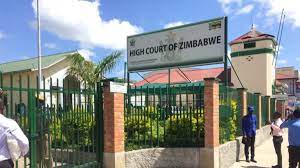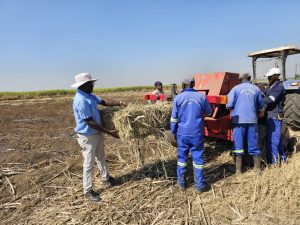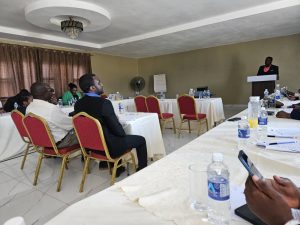Macdonald Mudzaki
As Zimbabwe grapples with environmental problems and the unprecedented effects of climate change, the country’s legal structure is under scrutiny with increasing calls being made for the establishment of specialized courts that deal with environmental offenses.
Environmental crimes are on the increase in the country; as evidenced by the destruction some wetlands, forests and wildlife species.
While the legal framework exists through such laws as the EMA Act, Parks and Wildlife Act the Forest Act to mention but a few, the call is on the judiciary to establish specialized courts.
The Zimbabwe Environmental Lawyers Association (ZELA) said the establishment of a specialized environmental court would ensure that issues are handled more diligently.
“Most perpetrators of environmental offenses, especially corporates, prefer the use of criminal law given the low sentencing fines levied by the law and the judiciary on environmental crimes.
“Establishing an environmental court will ordinarily ameliorate these challenges through broad-based jurisdiction, stiff fines and knowledgeable judicial officers.
“The convictions and judgments that the courts could give in this regard should ordinarily deter would be offenders and punish offenders,” said ZELA in a statement.
Writing for the Business Times, Zororai Nkomo a Zimbabwean journalist, lawyer and environmental justice activist said specialized courts play a very important role in the efficient and prudent demonstration of law.
“The first step towards the realisation of environmental rights in Zimbabwe is the creation of a Specialised Environmental Court.
“They play a very important role in the efficient and quick administration of justice especially on matters which require areas of specialization,” wrote Nkomo.
Speaking at a Webnar series organized by ZELA SADC parliamentary forum recently, manager for democracy and governance Sheuneni Kurasha lamented the weak and disjointed structure of the legal systems in as far as environmental issues were concerned.
“They are largely reactionary and not proactive hence there is need to address this to ensure the sustainable use of natural resources.
“For corporate accountability to be achieved in the natural resources sector, there is need for rigorous and intensified measures to be put in place so that communities are not left poorer with their air and water bodies contaminated and environment degraded,” said Kurasha.
To bring perspective, in July 2018, the Environmental Management Agent (EMA) fined Chitungwiza Municipality just US$30 for discharging raw sewage into nearby streams.
This Judgement was handed down by EMA board chairperson Ambassador Zenzo Nsimbi after deliberation with his ten member board.
The US$30 fine imposed on Chitungwiza Municipality was for contravening Section 57 (1) of the Environmental Management Act which stipulates that “Any person, who discharges or applies any poison or toxic, noxious or obstructing matter, radioactive waste or other pollutants or permits any person to dump or discharge such matter into the aquatic environment in contravention of water pollution control standards, shall be guilty of an offence and liable for imprisonment for a period not exceeding five years, or to a fine not exceeding ZWL$5m, or to both”.
In August 2020, EMA suspended operations of one of the country’s leading cement producers, Lafarge Cement, over pollution and could only resume after certain environmental standards had been met.
Specialized Environmental Courts (ECs) continue to mushroom at a global level. Australia is one of the earliest regions in the world to have established environmental courts with the US following suit in 1990. Countries like China, Sweden, Philippines and India have also established environmental courts.
Closer to home, Kenya was the first country to establish an environmental court in Africa.
Zimbabwe mooted the idea of establishing environmental courts mandated to adjudicate environmental cases during the Constitutional making process but such discussions did not make it to the 2013 Constitution.
Over the years, the country has faced massive environmental challenges such as illegal mining, environmental pollution, construction on wetlands which has ignited calls by the public, CSOs and government institutions the dire need to establish environmental courts.
This report was made possible through support from WAN-IFRA Media Freedom’s Strengthening African Media Programme: Climate Change and Environmental Reporting. Views expressed here do not belong to WAN-IFRA






